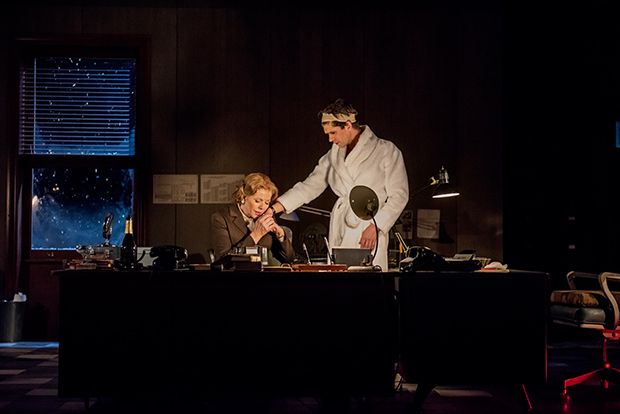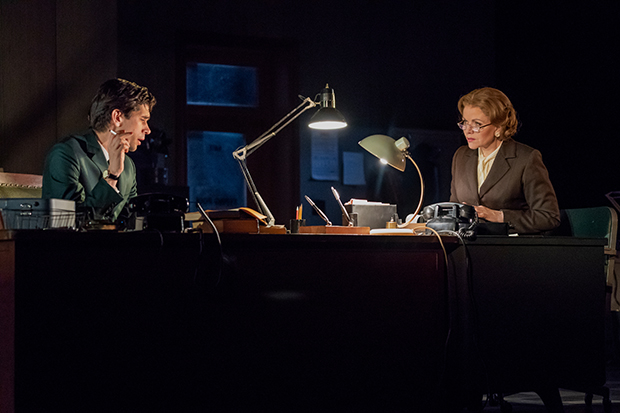Goodbye, Norma Jeane: Renée Fleming and Ben Whishaw Star in a Play About Marilyn Monroe

(© Stephanie Berger)
I can tell you a lot and nothing about Norma Jeane Baker of Troy, a spoken and sung theater piece that's inaugurating the Griffin Theater in the new multidisciplinary arts space the Shed at the Hudson Yards. Here are some definitives.
The play is written by Anne Carson, a poet and teacher of ancient Greek. It is staged by Katie Mitchell, who was once described by London's Independent as "a director who polarizes audiences like no other." It stars renowned opera singer Renée Fleming (Carousel) and Golden Globe winner Ben Whishaw (Paddington). Its subject is simultaneously the death of Marilyn Monroe and the myth of Helen of Troy.
What's onstage, though, is pretty impenetrable. Whishaw perhaps takes on the role of a playwright, but it's unclear if that's his actual job, and it's similarly hazy why someone would be writing a play in what looks like the back office of a department store (the set is by Alex Eales). Less ambiguous is Fleming's role — she's his typist, whose shards of thought come to life through jagged-edged songs (the discordant, occasionally bluesy score is by Paul Clark).

(© Stephanie Berger)
Over the course of 90 minutes, Whishaw dictates a play about Helen of Troy, as portrayed by Marilyn Monroe and occasionally Truman Capote, to Fleming. At the same time, Whishaw slowly transforms himself into Marilyn Monroe à la The Seven Year Itch (Sussie Juhlin-Wallén provided the costumes, including a look-alike white dress). Judging by the eerie sounds (by Donato Wharton) and unnerving lighting (by Anthony Doran), the world might be ending, too.
I'm not really sure what this soporific piece was getting at; judging by walkouts and bewildered expressions of many audience members, I was not alone. If the production's goal, as press notes describe, was to explore "the lives and myths of Marilyn Monroe and Helen of Troy — iconic beauties who lived millennia apart," it ultimately did not succeed. The piece draws no clear-cut parallels between them and teaches us nothing new.
Whishaw and Fleming are game throughout, though the laconic score doesn't allow Fleming's voice to shine. As the lights rose at the end, I was more than happy to say "goodbye, Norma Jeane" as fast as I could.










